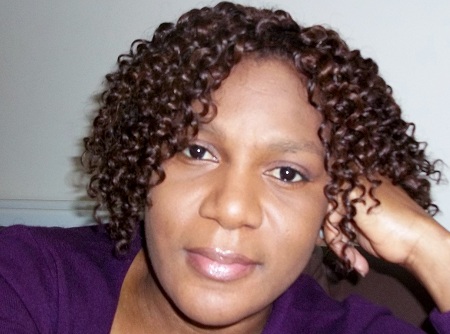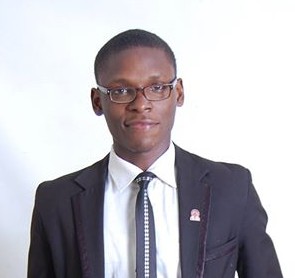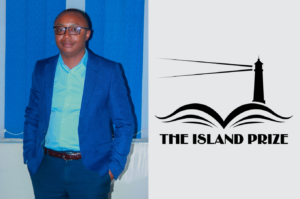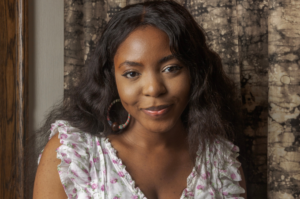 Ellen Banda-Aaku is a published and award-winning writer of books for children and short stories. Her first book for children, Wandi’s Little Voice won the 2004 Macmillan Writers’ Prize for Africa. Beyond being a writer for children, she also writes adult fiction. Patchwork, one of her published works and an award-winning novel is a work of adult fiction. She chaired the 2014 Writivism short story prize judging panel. She talked to Caleb Adebayo about her work.
Ellen Banda-Aaku is a published and award-winning writer of books for children and short stories. Her first book for children, Wandi’s Little Voice won the 2004 Macmillan Writers’ Prize for Africa. Beyond being a writer for children, she also writes adult fiction. Patchwork, one of her published works and an award-winning novel is a work of adult fiction. She chaired the 2014 Writivism short story prize judging panel. She talked to Caleb Adebayo about her work.
CA: Give us an insight into your background and what growing up was like for you?
EBA: I grew up in Zambia surrounded by books but I was not much of a reader. I did however talk a lot and tell a lot of stories as a child. I think it was this passion for telling stories that eventually translated into writing much later in my life.
CA: Your first and second degrees were not in anything even remotely related to writing, I am curious, when did you know writing was what you wanted to do and how did it happen?
EBA: I didn’t put much thought into my first degree. It was a natural progression from secondary school into university. I was put into the school of Humanities and I went for the course I felt would enable me to branch out into any career. I was not writing at the time. When I did my second degree I still wasn’t writing. I used to think about writing for a while but only when I took a career break and had mental space did I sit down and write. I was spurred on by a call for submissions by Macmillan Publishers for their African Writers’ Prize.
CA: So what drives your writing?
EBA: A story. When a story comes to mind all I think about is writing it. When I don’t have a story in my head I don’t really feel any desire to write. I am not someone who feels a need to write something every day or regularly. I have to have a story.
CA: And what kind of writer would you describe yourself as?
EBA: A writer for children.
CA: What spurred the interest for children literature?
EBA: I feel very comfortable in the voice of a child. I like the innocence and simplicity of a child’s voice.
CA: Your novel, Patchwork, took a new twist from your usual literature for children and is aimed at the adult audience. What inspired it?
EBA: It started off as a book for children and somehow changed in tone and length. I wrote it as my dissertation for my MA in Creative Writing.
CA: What kind of books do you enjoy reading?
EBA: Fiction, mainly by African and Asian writers, memoirs/autobiographies.
CA: What about growing up? What books did you read growing up?
EBA: I grew up on writers such as Enid Blyton. That was my generation. Later in my teens I started to read more African writers that were introduced to me through the school syllabus. As I said before I was not an avid reader because I preferred playing and telling stories orally to reading.
CA: How did reading these kind of books aid your writing?
EBA: I was not thinking about being a writer when I read books growing up. But something I do now particularly when I am about to start work on a book for children is I go to a library and read books for children in the age group I am about to write for. It just sort of puts my mind in the frame of a child.
CA: What is your involvement with Writivism?
EBA: I judged on the Writivism Short Story Competition 2014.
CA: You have sat on a couple of judge’s chair for various writing competitions. What is it that tickles your fancy about any particular writing?
EBA: In stories I look for originality. I am also big on characters. A story that has me thinking about a character or characters long after I have turned the last page works for me.
CA: Tell us about the first award you won as a writer?
EBA: My first ever piece of writing won the Macmillan Children’s Writers Prize for Africa in 2004. It gave me the incentive to write a full story and the discipline to work to a deadline. Winning the competition definitely encouraged me to continue writing.
CA: Okay. So in the early stages of your writing, what challenges did you face?
EBA: It took me a while to learn to take criticism or negative feedback. I also grew up with the perception around me that being a writer was not a serious profession so it took me a while to stand up and proudly declare myself to be a writer.
CA: How do you think budding writers should handle this when they are faced with it?
EBA: Remember that it is easier for someone to say good things about your writing than negative things. So even though you may not act on the criticism appreciate it because the person is putting themselves out and taking the risk to analyze your work.
CA: Do you think Writivism is doing anything for budding writers that can help be a sort of solution to the challenges they face?
EBA: Yes I do. Writivism is encouraging new writers to write by giving them a platform to write, to show their skills and to craft the art of writing.
CA: What about established African Writers? Do you think established African writers are doing enough to help budding writers in the process of writing and getting published? Do you think they have a duty to?
EBA: Writing is very subjective. It is also solitary. The most an established writer (who by the way is also occupied with their own writing) can do is give an opinion on someone’s writing but even that does not mean the work will be published. That decision lies with a publisher. My advice to all writers is focus and invest time in your writing. Do your homework in terms of submitting manuscripts to the right publishers etc. At the end of the day, it is your writing. It is your story and you have to take responsibility for it and not rely or expect help from anyone. If you get the help, it’s a bonus! Having said this many published African writers mentor writers through workshops.
CA: Have you ever considered writing and photography or travel writing?
EBA: Not travel writing. I am however doing more and more of writing on social issues. I have written a book on Cancer in Zambia and currently I am looking to write a book on Gender inequality in Zambia.
CA: Do you have any other thing you enjoy outside writing (and children of course)?
EBA: I enjoy sewing/tailoring.
CA: Tell us one special thing your readers do not know about you.
EBA: Sometimes I dream of going into fashion and design using African fabric/prints.
CA: Thank you for your time Ellen.
EBA: You are welcome, Caleb.
Image from Coverpark
This interview is the second in a series showcasing new African writers where African writers share their story as writers. Check back every Friday for a new interview. Thanks to the folks at Writivism for conducting the interviews and choosing to share it on our platform.
About the Interviewer:
 Caleb Adebayo is a writer and journalist based in Nigeria.
Caleb Adebayo is a writer and journalist based in Nigeria.









ellen banda on writing children’s fiction | semper aliquid novi africam adferre November 05, 2014 09:02
[…] Banda talked with Caleb Adebayo and he wrote it all down in such a way we can learn more about the work of […]